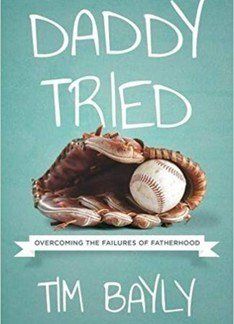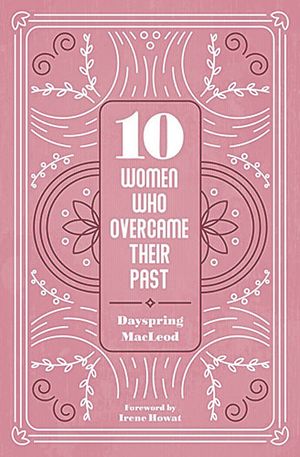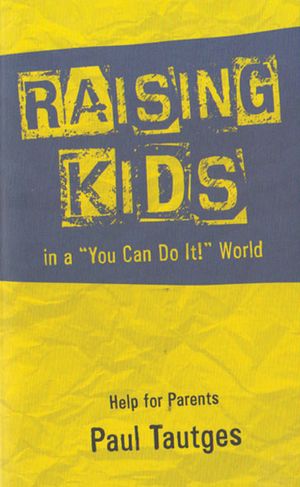(5 Star)
With good reason, theologian John Frame calls this ‘the best book on fathering currently in print’. Tim Bayly is an American pastor with over 30 years’ experience. He addresses fatherhood in the home, church and public square, with application to fathers, ministers and all men.
Daddy tried begins with ‘Fatherhood lost’, rooting the sad state of fatherhood today in fatherhood’s first failure: Adam’s fall. Amid these opening chapters, the foundation for repentance is laid — to see our sin not in a vague, general sense, but in the particulars of daily life.
Bayly writes: ‘Of course we can choose to go to a church where the pastor never forces us to look at our teeth and our gums, where he never requires us to have an endoscopy or to get on the examining table. But what’s the use? Where will that get us — sitting under a preacher who never preaches to our sin and our conscience’ (p.34).
The next section, ‘Fatherhood redeemed’, patterns true fatherhood on God the Father. It focuses on God’s love, discipline and jealousy. Bayly outlines the tenderness of a father’s love and opens our eyes to the various ways God’s fatherly discipline is despised in the world today.
‘Fatherhood restored’ is the next theme, analysing practical details of fatherhood. In a chapter on marital fruitfulness, Bayly brings a much-needed breath of fresh air to the widespread antipathy today towards the hard work of having and raising children, bringing the Bible to bear on this little-discussed topic at the heart of fatherhood.
The book continues with some practical wisdom on household discipline. This is tremendously helpful, because, by and large, Christian fathers have forgotten how to bring fatherly discipline to their sons and daughters. It was this chapter, a young father told me, that stood out to him most.
Next, fathers are addressed concerning the instruction of their children. Priority is given to training in the ways of God above all other pursuits, such as education or career success.
After a chapter on fatherly love, Tim Bayly speaks to church fathers: pastors, elders, deacons, Sunday school teachers and the like. He focuses on two aspects of fatherhood: discipline and tender affection. On discipline he writes: ‘I fear our talk of grace and parallel neglect of discipline are too often the products of our aversion to conflict, our fear of a drop in attendance and giving, and our dread of dismissal’ (p.146).
Following this is a chapter on city fathers. Tim Bayly’s love for his own father shines through, with some precious examples of the godly work of fathers in the public square. The concluding section, ‘Fatherhood and failure’, ends with a chapter entitled ‘He failed gloriously’, encouraging fathers not to be dismayed at their failures.
If would-be readers fear that this book will strike some raw nerves, then take hope. As the subtitle implies, it is written for failures! It packs a weighty punch, but comes with a deep sense of hope and encouragement for men to look to God, who grants the courage and resources to obey.
Henry Milewski
Aberdeen
(4 Star)
The author is a father of five and grandfather to 21 children. The book comes highly recommended by known professors and pastors.
The author relates fatherhood to the fatherhood of God, the archetypal Father. It is a book written by a man for men — and here I am, a woman reviewing it! At 204 pages, including the Scripture index, I wonder how we can encourage younger men of today, more used to blogs and websites, to read it and gain from its wisdom and challenge?
I appreciated the fact that Daddy tried started with a biblical review of fatherhood, from Adam onwards. Biblical and pastoral examples go side by side. God’s love and his loving discipline are explored, as is the Father’s relationship with his beloved Son.
The author argues against the downgrading of the word ‘father’ in some of our new translations and seeks to put fatherhood in its rightful place. He is not afraid to challenge some problems of contemporary culture and face the readers with God’s explicit commands to fathers. He advocates spanking, and some readers will not approve! He takes a very conservative stance on the roles of men and women.
The chapters I found most helpful were the ones that contained a clarion call for fathers to be involved in the spiritual teaching of their children. I appreciated the author’s strong stand on domestic violence and the advice he gives church leaders on how to handle this. The book deals with failures honestly and by giving hope.
Church leaders will benefit from having this book on their shelves, and if they can encourage the younger fathers to read it, well and good.
Sheila Stephen
Visiting lecturer at Union School of Theology

